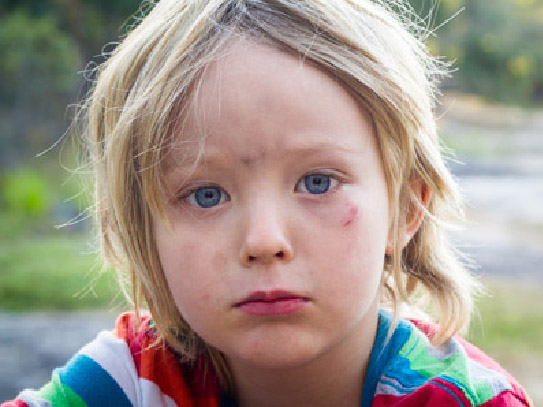
What does it mean to be trauma aware?

This article was authored by Lisa Cherry, a highly regarded independent lecturer, keynote speaker in trauma, resilience and recovery with a sharp focus on looked after children and the impact on the adult that the child will become. Lisa is a published author of three books with two more coming out in 2016.
Something I have noticed as I travel around the UK delivering training on trauma, resilience and recovery in a variety of settings, is that sometimes there is a misunderstanding about what being trauma aware means. There is sometimes a view that it is something that involves targeting identified children for example those who are Children Looked After or Adopted children.
This approach suggests a ‘them and us’ view of the world that separates us from one another rather than bringing us together in the human experience. What connects us, what makes us similar, is that we are all capable of being vulnerable and having trauma happen to us in the same way that we all have the potential to be resilient.
A trauma aware approach therefore does not distinguish between us in that way. It seeks to provide an environment that means that when we are vulnerable, the environment we are in will aid recovery and healing and not add to it. For children who have experienced a lot of trauma and are incredibly vulnerable as a result, benefit deeply from being somewhere that acknowledges that vulnerability on a deeper level.
By taking an approach that serves everyone, children who are more vulnerable, such as Children Looked After, by definition are more likely to get their specific needs met without having to be singled out. This also helps the children for whom no known information has been made available but are living daily with trauma, yet manage to stay ‘under the radar.’ Dani Bostick talks about that very experience here in The Huff.
 “Trauma is when we have encountered an out of control, frightening experience that has disconnected us from all sense of resourcefulness or safety or coping or love.”
“Trauma is when we have encountered an out of control, frightening experience that has disconnected us from all sense of resourcefulness or safety or coping or love.”
Tara Brach, 2011
Children who have experienced neglect, abuse, domestic violence, drug addicted parents, for example will be particularly vulnerable to being in environments that do not offer a trauma aware approach which is why it is vital that we work as hard as we can to educate, inspire and form a network that recognises this.
The impact of not doing so is played out in all adult services, suicides, offending, self harming, depression, anxiety, homelessness, and so it goes on.
So what does a trauma aware environment look like?
Recovery from trauma and/or traumatic events requires safety, acceptance and connection; all the things that we all want from our relationships with others because this is what it is to be human. The sooner that this is how people see their work as an integral part of the ‘system,’ the sooner real meaningful and effective change will be able to take place. Until then, everyone pays the price for trauma. Multi generational trauma that repeats cycles creates havoc in communities that costs us dear, emotionally, financially and spiritually.
This article was originally published at www.lisacherry.co.uk
